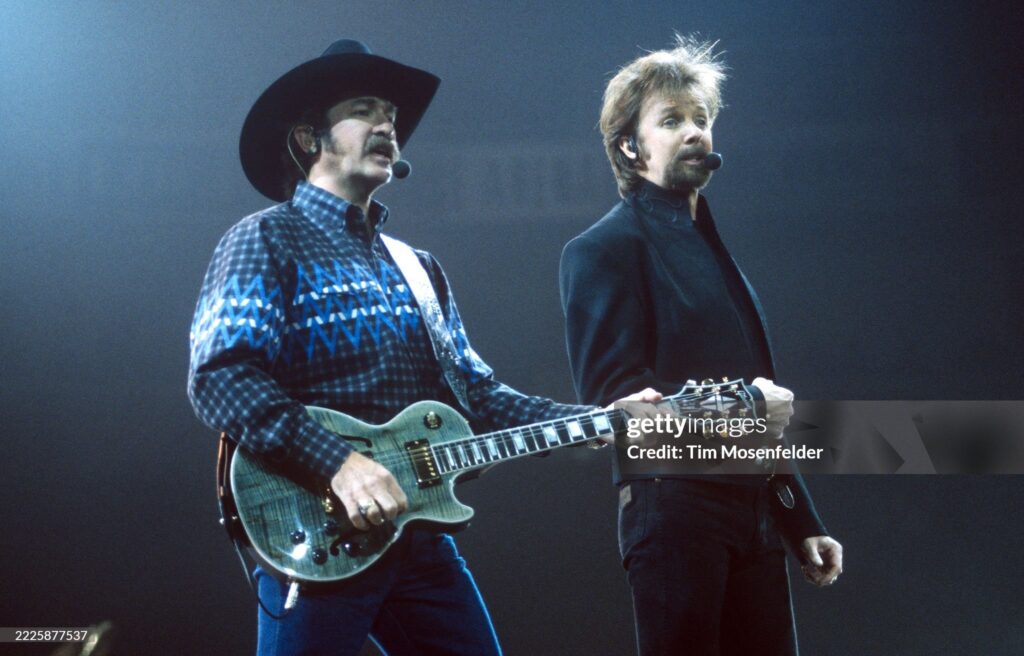
A Grit-Polished Anthem to the American Backbone
When Brooks & Dunn released “Hard Workin’ Man” in February 1993 as the title track and lead single from their sophomore album Hard Workin’ Man, they didn’t just drop another radio-friendly country hit—they forged a steel-toed tribute to the blue-collar ethos that has long defined the emotional bedrock of American music. The song climbed swiftly up the Billboard Hot Country Singles & Tracks chart, peaking at No. 4, and it cemented the duo’s growing reputation as torchbearers for a new generation of honky-tonk storytellers.
Coming on the heels of their breakout debut album, Brand New Man, which had already proven that Kix Brooks and Ronnie Dunn were more than just Nashville’s flavor of the month, “Hard Workin’ Man” was both an affirmation and an evolution. Where earlier hits flirted with boot-scootin’ bravado and barroom romance, this song cut deeper—an ode not to love or lust, but to labor itself. It resonated with those who rise before the sun, who wear calluses like medals, and who find dignity not in grand achievements but in everyday perseverance.
Penned by Ronnie Dunn himself, the lyrics unfold with unflinching clarity: “I wear a steel hard hat / I can ride, rope, hammer and paint / Do things with my hands that most men can’t.” In these lines, Dunn doesn’t simply list skills—he crafts a self-portrait of resilience. The character in this song is not a caricature; he is an archetype. And while his world may be framed by dust and diesel, it is animated by pride, honor, and an unwavering sense of identity.
Musically, “Hard Workin’ Man” pulses with a blend of traditional country instrumentation—twangy Telecaster riffs, fiddle flourishes—and modern production sheen that made it palatable to both purists and the emerging ’90s country crowd. This was no accident; Brooks & Dunn were masters at bridging generational divides. The track’s arrangement carries the rhythm of relentless motion—like tires humming on asphalt or boots stomping on barnwood floors—mirroring the ceaseless energy of its subject matter.
But beneath its gritty veneer lies something subtler: a yearning for recognition. The protagonist doesn’t ask for praise; he demands understanding. “I’m a hard workin’ man / I gotta get it on while I can.” There’s urgency here—not desperation, but defiance against invisibility. In elevating such an everyman narrative to anthem status, Brooks & Dunn gave voice to millions who rarely hear themselves reflected in popular music.
As country music grappled with its own modernization in the early ’90s—straddling tradition and pop accessibility—songs like “Hard Workin’ Man” reminded audiences what truly endures: sincerity. This isn’t a song crafted for flash or fame; it is forged in honesty and honed by empathy. That enduring authenticity would later earn the track a Grammy Award for Best Country Performance by a Duo or Group with Vocal in 1994—a rare moment when critical acclaim aligned perfectly with grassroots admiration.
In the canon of American working-class anthems, “Hard Workin’ Man” stands shoulder to shoulder with Merle Haggard’s dust-choked ballads and Springsteen’s rustbelt reveries. It is less a song than a statement—a resonant chord struck deep within anyone who’s ever punched a clock or chased daylight across an open field.